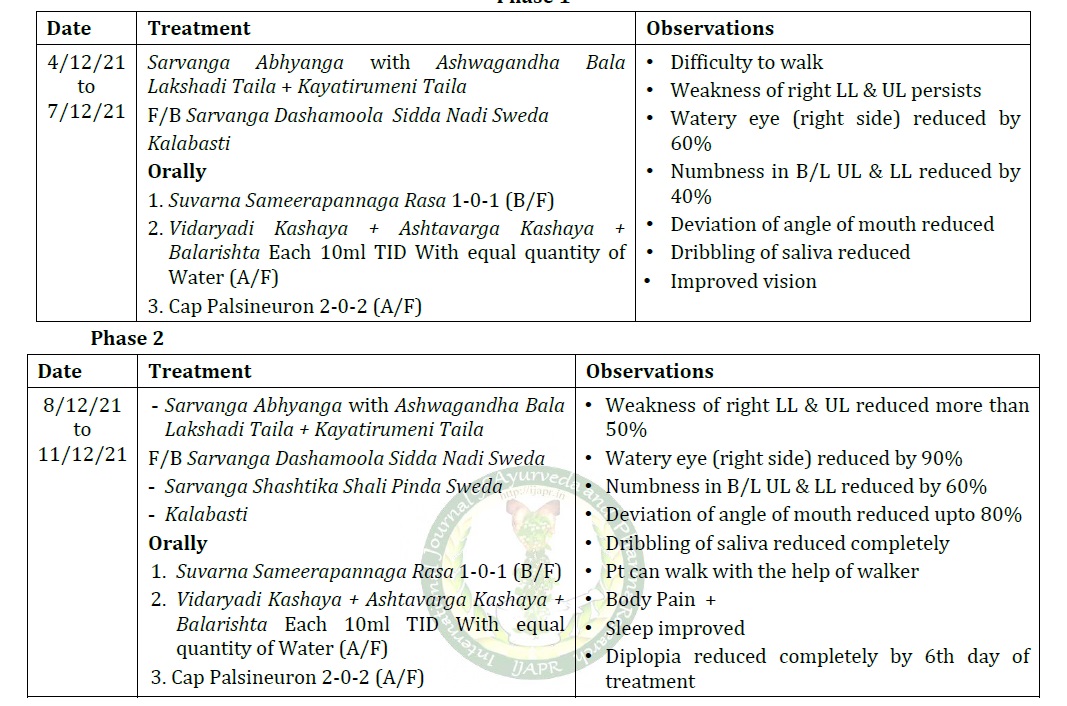Ischemic Stroke of Brain Management Approach Through Ayurveda - A Single Case Study
Abstract
Stroke is one among such diseases which needs immediate care and attention as it causes death and disabilities in the person, hence considered as a major burden in developing countries like India. The estimated adjusted prevalence rate of stroke in India ranges from 84-262/1,00,000 in rural and 334-424/1,00,000 in urban areas. The incidence rate is 119-145/1,00,000 based on the recent population-based study. The nearest clinical entity for stroke is Pakshaghata. Methodology: A 51yrs old male patient who is a known case of DM since 6years under regular medication approached to OPD of SKAMCH & RC Bangalore, with a Lakshana of loss of function, sensation, speech etc where mainly right half of the body was affected. Based on the clinical presentation and Ayurvedic parameters, the condition was diagnosed as Pakshaghata with special reference to ischemic stroke with possible multiple lacunar infarcts and Chikitsa was adopted keeping Dhatukshayajanya pathology as base. The treatment such as Sarvanga Abhyanga, Sarvanga Nadi swda, Sarvanga shashtika shali pinda sweda and Basti with oral medications like Suvarna sameerapannaga rasa, Vidaryadi Kashaya, ashtavarga Kashaya, balarishta and Cap. Palsineuron were prescribed. Result: There were drastic improvements seen in the Lakshanas. Overall fruitful result was achieved even follow up were maintained. Discussion: This article is a discussion about a case of ischemic stroke of brain which was successfully treated with Ayurvedic approach. The disease Pakshaghata with its Lakshanas, Nidana, Samprapti, Sampraptivighatana of Chikitsa given, along with the approach to conclude its possible modern co-relation as Ischemic stroke of brain were the main points Sampraptivighatana, chikitsa given, consideration. Conclusion: The above-described sets of Panchakarma treatment along with Shamanoushadhi has shown significant result clinically with speedy recovery within a month in the patient in the present study.
Downloads

Copyright (c) 2022 International Journal of Ayurveda and Pharma Research

This work is licensed under a Creative Commons Attribution-NonCommercial-ShareAlike 4.0 International License.






